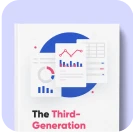How to Connect a Business Glossary With BigQuery?
Share this article
Using a business glossary with BigQuery streamlines data terms and definitions management, enhancing clarity and decision-making efficiency across the organization. The use case of business glossaries aligns with BigQuery’s capabilities as it involves managing and analyzing large datasets.
BigQuery’s capabilities for scalable, serverless data warehousing and SQL querying empower organizations to process and analyze large data sets efficiently. This leads to valuable insights and supports informed decision-making.
The evolving nature of a business glossary ensures data terms are up-to-date and accessible across an organization and handle vast amounts of data created in BigQuery.
Table of contents #
- Why should you use a business glossary tool with BigQuery?
- BigQuery overview
- What is a business glossary?
- What are the benefits of using a business glossary tool with BigQuery?
- Implementation strategy for business glossary tools
- Guidelines and tips for using business glossaries effectively with BigQuery
- Related reads
Why should you use a business glossary tool with BigQuery? #
Implementing a business glossary is crucial because of the following reasons:
- It ensures a common language and consistent understanding of business terms and concepts.
- It facilitates data accuracy and quality by clarifying definitions.
- It enhances collaboration and communication among your teams. Supports data governance, compliance, and informed decision-making.
BigQuery overview #
BigQuery is Google’s fully managed, serverless data warehouse, enabling scalable analysis over petabytes of data. It’s a Platform as a Service (PaaS) supporting SQL queries and includes built-in machine learning capabilities.
What is a business glossary? #
A business glossary is a tool that helps organizations manage, define, and govern data assets, ensuring consistent understanding and use of data across the enterprise.
It acts as a central repository for business terms, definitions, and metadata, facilitating better data management, collaboration, and data-driven decision-making.
What are the benefits of using a business glossary tool with BigQuery? #
Using a business glossary tool with BigQuery helps organizations efficiently analyze glossary data, ensuring accurate interpretation of terms, and facilitating data-driven decisions.
Benefits include:
- Lightning-fast data analysis.
- Real-time insights for informed decision-making.
- Seamless integration with data sources.
- Enhanced data quality and consistency.
Implementation strategy for business glossary tools #
When evaluating the best business glossary tools in an environment where BigQuery is used, consider the following steps:
- Define requirements: Identify specific needs and goals for the use case. Involve stakeholders to gather their input and priorities.
- Research competing solutions: Explore more alternatives and compare features, pricing, scalability, and integration capabilities of them.
- Perform proof of concept (PoC): Conduct PoC with selected tools to assess their suitability. Measure performance, ease of use, and compatibility with existing systems.
- Consider security and compliance: Evaluate each tool’s security features and compliance standards. Ensure alignment with data governance and regulatory requirements.
- Assess total cost of ownership (TCO): Calculate the total cost of ownership, including licensing, infrastructure, and maintenance costs. Consider long-term scalability and cost-effectiveness.
- Gather user feedback: Solicit input from potential users and data professionals. Understand their preferences, pain points, and expectations.
- Create a business case: Compile findings into a clear business case that highlights benefits, cost savings, and ROI. Emphasize how the chosen tool aligns with organizational objectives.
- Gain stakeholder buy-in: Present the business case to key stakeholders. Address questions, concerns, and objections.
- Pilot implementation: Start with a pilot implementation to validate tool performance. Collect feedback from real-world usage.
- Continuous monitoring and optimization: Regularly assess the tool’s performance and its impact on the use case. Make necessary adjustments to optimize its usage.
Throughout the evaluation process, ensure that the selected tool aligns with the organization’s specific use case needs, promotes collaboration, enhances data quality, and supports informed decision-making.
Guidelines and tips for using a business glossary tool effectively with BigQuery #
Common pitfalls when implementing a business glossary tool in a BigQuery environment include:
- Lack of stakeholder involvement: Inadequate engagement of key stakeholders can lead to incomplete glossaries.
- Insufficient documentation: Failing to document terms and context can hinder clarity and understanding.
- Neglecting updates: Regular updates are crucial to ensure glossaries remain relevant and accurate.
- Complex terminology: Overcomplicated terminology can deter user adoption and understanding.
- Data governance oversight: Ignoring data governance practices may result in data quality issues.
To avoid these pitfalls, organizations should prioritize stakeholder involvement, thorough documentation, regular updates, user-friendly interfaces, and adherence to data governance standards during the implementation of business glossaries in a BigQuery environment.
BigQuery business glossary: Related reads #
- BigQuery Documentation
- Business Glossary: Definition, Examples, Responsibility & 5 Common Challenges
- How to Create a Business Glossary: A Step-by-Step Plan
- What is a Business Glossary Template? & How to Build a Business Glossary for Your Organization?
- Governed Business Glossary 101: What Does It Entail?
- Business Glossary Value: How & Why It Matters
- How to set up Google BigQuery
- How to crawl Google BigQuery
Share this article











